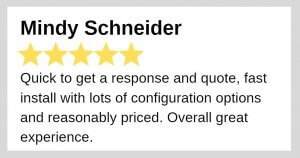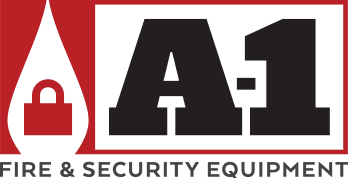
Codes and regulations dictate the functionality of commercial fire alarm systems (including what type it is and what monitoring procedure must take place). Aside from these codes, the local establishment must follow the rules set forth by their local jurisdiction.
What Are The Types of Fire Alarms
NFPA 72
Different types of fire alarms for commercial buildings – whether it’s new or a replacement, must follow NFPA 72. It’s the National Fire Protection Association’s regulations for fire alarm installation in commercial buildings. It specifies the requirements for emergency communications, signaling, and fire detection. It also lays out additional building codes and regulations on what types of fire alarms fit which specific type of commercial building.
A good and reliable fire and security alarm company should be knowledgeable of these requirements. They must also be aware of how these guidelines pertain to your business or company.
Fire Compliance for Commercial Buildings
On top of complying with the guidelines laid out by NFPA 72, the following are additional codes that will affect what fire alarm system you need:
The Occupational Safety and Health Administration (OSHA) was founded to assure safe and secure working conditions for everyone. The standards set forth by OSHA include outreach, education, and training both to employers and employees.
The Americans with Disabilities Act (ADA) compels buildings to have ADA-compliant walkways, entryways, elevators, etc., in and around the premises.
How do commercial fire systems operate?
On top of detecting flames and smokes, one of the features of different types of fire alarm systems is changing in temperature and gases such as carbon dioxide.
Thus, constant monitoring of the detectors and alarm systems is crucial. They should also connect to a sprinkler system as well as other commercial fire suppression systems.
When the fire alarm is triggered, the monitoring center is immediately notified. They will then need to verify if it’s a genuine alarm or a false one, which is a significant issue in some cities.
Many commercial property owners use video security and verification to avoid false alarms. The cameras, which should already be in use for security efforts in the first place, can be used by your monitoring station to check the legitimacy of the fire alarm – eliminating the problem of false fire alarms.
Commercial Fire Monitoring Efforts
One of the critical things to look for in a security provider is what central monitoring station they use. Some security companies work with well-known and established third parties; some have their own monitoring facility.
Either way, you need to make sure that your commercial fire monitoring needs are met. Also, security and monitoring companies may offer additional services that you weren’t aware of and that you may want to take advantage – whether it’s custom suppression systems, specific notification systems, etc., depending on what type of business and establishment you have.
Make the Right Choice
Fire and security companies will enumerate the types of fire alarms and select which one best suits your needs. Once you know the basic types, you must ensure that your fire security provider has a proven track record of professionalism and reliability.
One mark of a reputable security provider is their affiliation with the National Institute for Certification of Engineering Technologies (NICET). NICET-certified technicians are knowledgeable in the proper inspection, analysis, repair, installation, and maintenance procedures of commercial buildings.
Integration is Key
Another important mark of a good security provider is their experience with commercial security system integration. This includes integrating security, access, fire, monitoring, data security, energy savings, and other systems within the premises. Integrating all these aspects of security will bring you operational efficiencies as well as a good ROI.
As you bring all your essential security systems together, you can manage them in one platform – even remotely. This feature equates to better savings through more efficient control over your systems.
On top of that, business managers and property owners can utilize the latest camera advancement and analytics for business and discover useful business patterns – as well as reduce theft, losses, etc.
Build a Smart Building. Be a Smart Business Owner
Knowing different types of fire alarms is the start of building a smart building and being a smart business owner. As you take these steps, you can ensure the safety and security of your staff and your assets.



